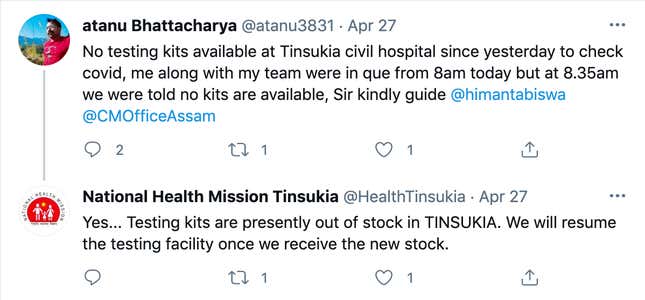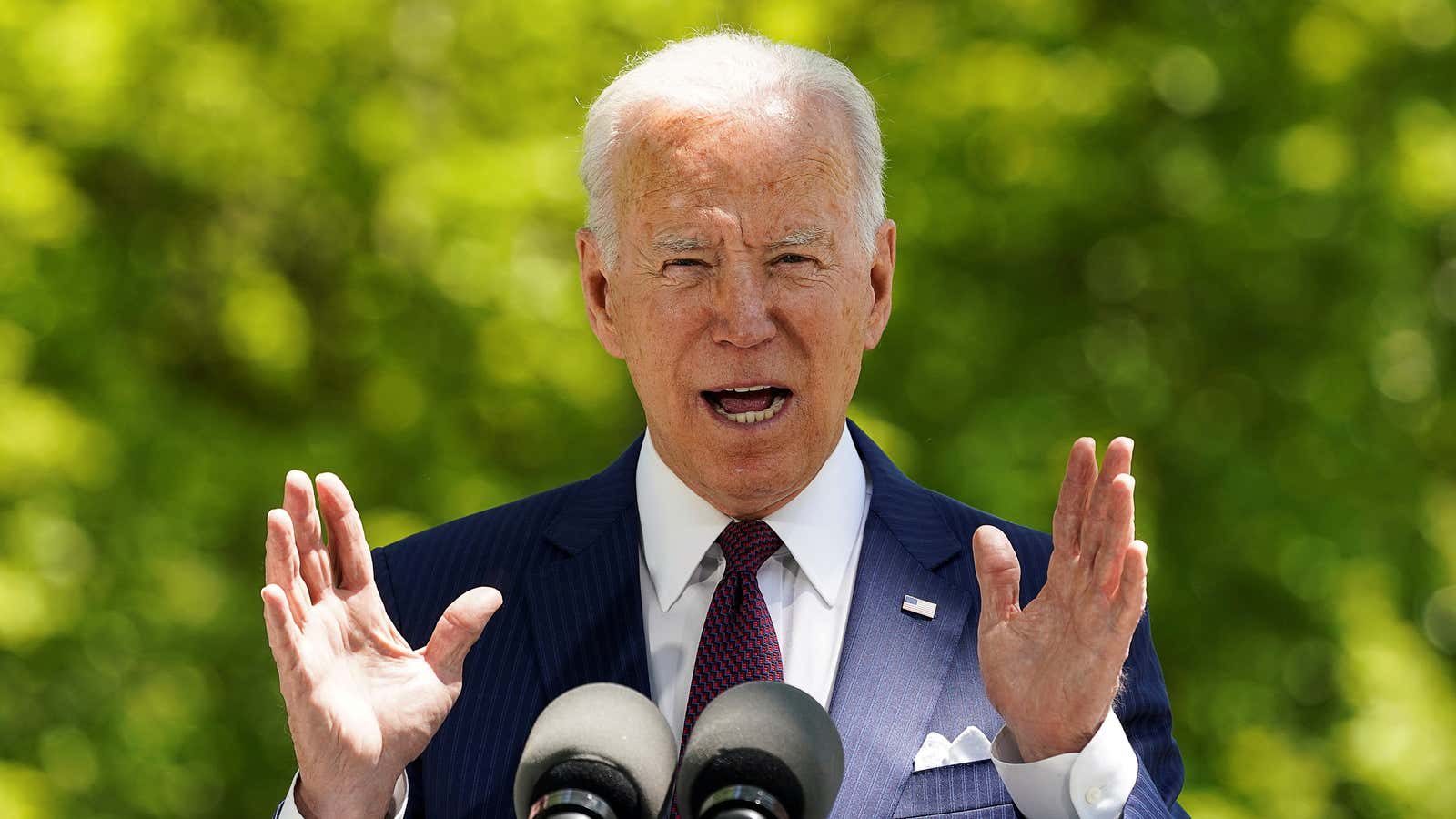India’s hapless situation has US senators urging the American government to act.
On April 27, co-chairs of the Senate India Caucus John Cornyn and Mark Warner, asked US president Joe Biden to offer a lending hand to countries that have been badly hit by the Covid-19 pandemic. Calling the situation in India “alarming,” in their letter to Biden (pdf), the duo said, “US government agencies—both civilian and military—should be mobilized to lead an international response to the pandemic.”
On April 28, India saw 379,000 new cases of Covid-19, even as citizens struggled to access basic healthcare resources such as medicines and oxygen.
“India is now the epicenter of this crisis and faces a severe shortage of testing kits, vaccines, oxygen equipment, personal protective equipment, and medical facilities,” Cornyn and Warner wrote. “India is also in great need of treatments and medicines, including oxygen, monoclonal antibodies, Remdesivir, and high-quality dexamethasone to combat the virus.”
Below are some of the key points made by the Senate India Caucus, a bipartisan coalition that brings national attention to domestic and international issues that affect economies and security:
Of testing kits…
“Even accounting for current and anticipated need domestically, there is now a surplus supply of testing kits that can have the greatest impact abroad.”
India is experiencing an acute shortage of testing kits. In mid-April, the western state of Maharashtra, which has been the epicenter of the second wave, was faced with a sudden shortage of RT-PCR testing kits. The same story played out in Kolkata, the capital city of the eastern state of West Bengal, a fortnight later.
Around the same time, several labs in India’s capital Delhi began closing voluntarily as they didn’t even have enough kits to test the swabs they had already collected. Labs in the northeastern state of Assam started running out of the resource, too.

Of medicines…
”India is also in great need of treatments and medicines, including oxygen, monoclonal antibodies, Remdesivir, and high quality dexamethasone to combat the virus.”
Five tonnes of oxygen concentrators were dispatched from New York for India earlier this week. ”We are sending immediately a whole series of help that he needs, including providing for those Remdesivir and other drugs that are able to deal with this,” Biden told White House reporters on April 27.
Of vaccines…
“…with millions of unused AstraZeneca vaccine doses on hand, the US has the ability to send many abroad without a detrimental impact to our own vaccination efforts at this crucial time. We applaud and encourage your efforts to share AstraZeneca doses with India and other countries in need as they come available.
(…)
we urge you to remove the export embargo on raw materials to India used in vaccine production, which would allow The Serum Institute of India to ramp up production of vaccines that it already produces domestically.”
The US is averaging 2.82 million vaccine doses per day, and a quarter of the population is fully vaccinated. India, in comparison, has fully vaccinated less than 1% of its citizens.
In fact, the Modi government’s claim about the “transparent, liberalised, and accelerated” vaccination drive is quickly turning out to be a farce. And around 200 million doses of Covid-19 vaccines the government has so far purchased will cover just 8% of its 1.4 billion population, according to the Duke Global Health Innovation Center.
Moreover, the pace of vaccination has slowed owing not only to shortages but also lack of awareness and internet access.
Meanwhile, the US is reportedly hoarding vaccines to the tune of 70 million. In March, Biden had said that once all Americans are vaccinated, he would share the surplus with the world. For now, the US will send raw materials for vaccine production, but there is still no word on sharing vaccines.
Of humanity…
There has been much uproar around prime minister “super spreader” Narendra Modi allowing elections and massive religious events like Kumbh. But it has all fallen on deaf years as election rallies continue in heavily populated states where the pandemic is only getting worse. Then, articles criticising the government’s handling of the crisis are disappearing, as are dissenting tweets.
In the last couple of weeks, the world has started to step up in some ways. Experts say the need for the US to help India extends beyond diplomatic reasons to “humanity, pure and simple.”
If left unattended, India’s crisis could become a worldwide one. Not only because the world’s largest manufacturer suddenly stopped exporting vaccines, but because the virus could continue to mutate and spread. The latest Indian Covid-19 strain has already been found in 17 countries.
“In order to control its spread globally, saving lives abroad and here at home, we must do our part to attack the virus where it is most devastating and active,” Cornyn and Warner wrote.
